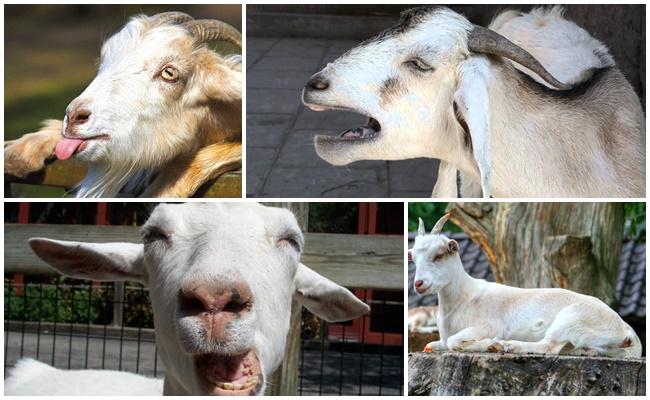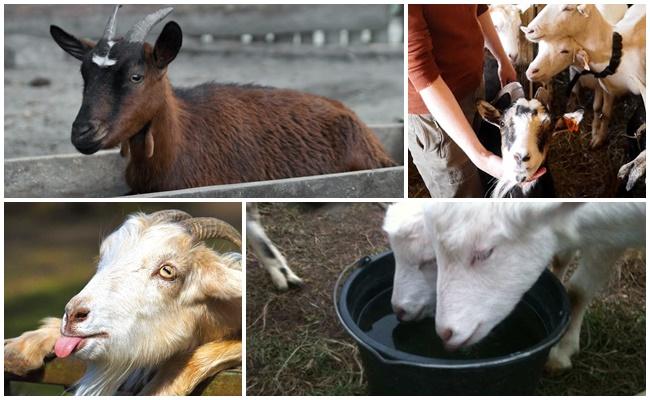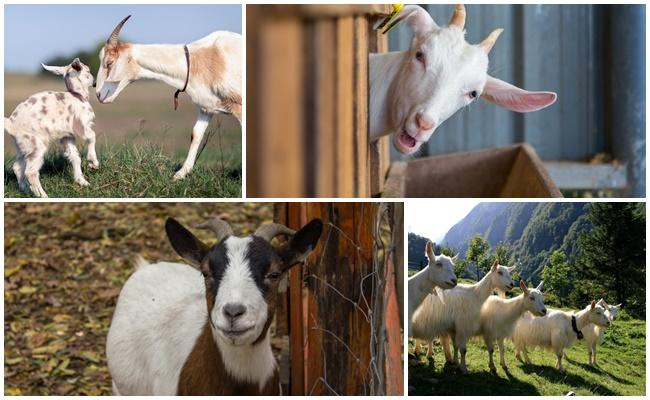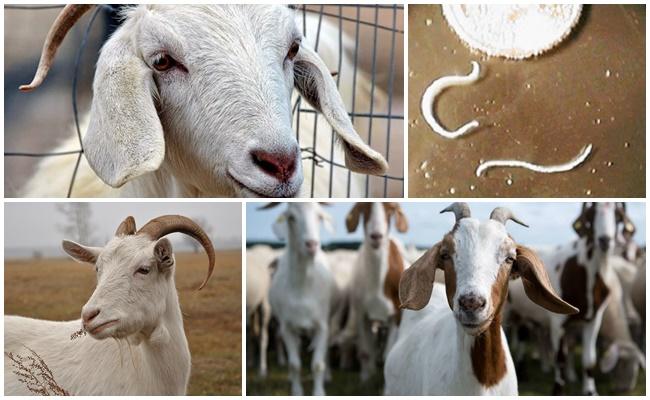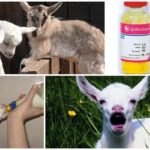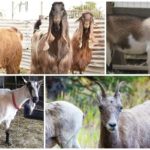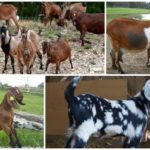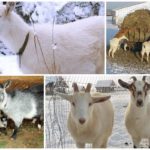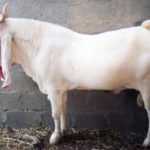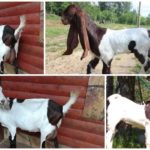Today, many people move from the city to the countryside and start a household. Therefore, raising goats has become a popular activity, because they are much easier to care for than cows. But content errors and carelessness lead to problems. For example, if a goat starts coughing, this can happen for various reasons, each of which the breeder needs to be aware of.
Possible causes of cough in goats
An animal may cough due to the development of diseases, poor care, or under the influence of other factors.Coughing is a reflex that helps protect the goat’s bronchi and lungs from irritants. Therefore it appears:
- in case of accidental inhalation of dust;
- in a female who is pregnant, when the fetus begins to put pressure on the diaphragm;
- if the pet choked on hay or branches;
- for helminthic infestations.
The cough, in the first three cases, goes away quickly; if infected with worms, it is necessary to give medicine to the entire livestock. For prophylactic purposes, anthelmintic drugs are used quarterly.
Violation of containment conditions
It is more difficult if the cough occurs as a result of illness or maintenance errors. One or more animals may suffer from a cold; the development of various types of pneumonia threatens to affect the entire livestock. There are many prerequisites for the development of a cold:
- cold and strong drafts in the goat house;
- walking animals on frost or dew;
- water too cold to drink;
- walking in rainy or windy weather in spring and autumn.
An animal with a cold sneezes and coughs; if left untreated, nasal discharge begins, and the disease can develop into bronchial pneumonia. Drafts should be eliminated and animals should be provided with thick bedding. Goats should not be kept in damp, dark or cold environments. A balanced diet and the presence of vitamins (fish oil, bone meal) allow you to get a healthy livestock.
Water too cold
The goat needs free access to drinking water. Lack of fluid causes decreased milk yield and other problems. In the autumn-winter period and early spring, animals can catch a cold by consuming too cold water.If your goat is coughing but eating well, with no nasal discharge or fever, cold water may be the cause of the cough. In winter and in the off-season it is better to heat it.
Wrong walking
The goat needs to move and run a lot. In the absence of walking, the animal withers, becomes lethargic, produces less milk, and obesity may develop. However, you should not walk goats in too windy, rainy weather or when temperatures drop significantly, leaving them without shelter for a long time. The goat catches a cold, coughs, and requires treatment.
Infectious diseases
Often a cough is a sign of infectious diseases. That is why, if an animal coughs a lot or eats poorly, it should be placed in a separate enclosure and a veterinarian should be called, who will clarify the cause and prescribe treatment.
Pleuropneumonia
It is transmitted by airborne droplets and develops as a result of cold and dampness, overcrowding, and weakened animals. It is characterized by an increase in temperature to 42 ° C, the occurrence of shortness of breath, trembling and dry cough. Then the duration of the cough increases, it becomes wet, and then mucus, sometimes containing blood, begins to be released from the nose. 7-10 days after the onset of the disease, the animal dies.
The disease is treated with antibiotics (for example, Tetracycline) and has a high mortality rate. In case of mass infection, quarantine measures are carried out.
Bronchopneumonia
Most often occurs due to content errors. Animals have a fever, become lethargic, cough, and lose their appetite. There is a flow of mucus from the nose. Antibiotics and expectorants are used for treatment. The goat is separated from the herd, transferred to a dry, warm room, and provided with warm drinks and good nutrition.
Echinococcosis
A disease caused by worms. Cestodes are localized in the lungs and liver, forming blisters that grow over time and compress the infected organ. Revealed upon opening. Echinococcosis can cause coughing if cestodes enter the animal’s lungs.
The main source of infection is the feces of dogs, and less commonly of cats. Sick goats become lethargic, their productivity decreases, and their appetite decreases. In order to prevent animal diseases, all dogs on the farm should be systematically wormed and should not be allowed into the barn or slaughter areas. Carefully check the condition of the internal organs of livestock after slaughter. Treatment of goats is ineffective and is not carried out. Sick animals are sent to slaughter.
Dictyocaulosis
Caused by nematodes that parasitize the lungs of artiodactyls. Signs include weakness, lack of appetite, cough, diarrhea. Goats become infected with parasites on pasture, when consuming water from open ponds or puddles. It is treated with anthelmintic drugs (Alben, Albendazole, Monizel). It is given to the entire livestock in case of infection and once a quarter for preventive purposes. Kids are wormed from 3 months. Summary goats - after 1 month of pregnancy.
Prevention measures
Good living conditions, adherence to diet, veterinary care and preventive measures make it possible to raise and maintain healthy livestock.
If there is a cough, you should isolate the animal and seek veterinary help. Lack of treatment can lead to the death of the animal, and consumption of infected or helminth-contaminated milk or meat is dangerous for humans.

